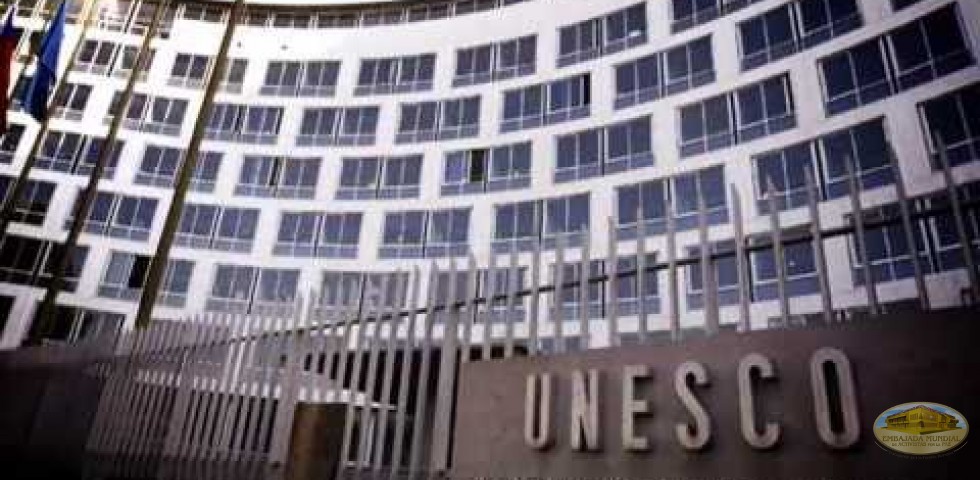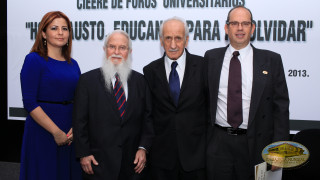Commission on Human Rights in Mexico
According to the United Nations Educational, Scientific and Cultural Organization (UNESCO), education is the starting point to build peace and promote the principles of dignity, equality, freedom and mutual respect among all members of the human family. This is established in Article 26.2 of the Universal Declaration of Human Rights:
“Education shall be directed to the full development of the human personality and to the strengthening of respect for human rights and fundamental freedoms. It shall promote understanding, tolerance and friendship among all nations, racial or religious groups, and shall further the activities of the United Nations for the maintenance of peace.”
"Mexico requires a new generation with values, where our children and youth can learn the lessons that history offers," said Francisco Guerra, Coordinator of the Global Embassy of Activists for Peace in Mexico.
Through university forums and educational programs, the Global Embassy of Activists for Peace desires to fulfill the objectives established by this United Nations Declaration.
During the Nazi regime, education served as a means of indoctrination, an anti-Semitic message of ethnic hatred, discrimination and intolerance spread in schools and universities. Therefore, it is in schools and universities that we can spread a message of love and fellowship towards others, with a basis in respect for human dignity, tolerance and the recognition of fundamental rights.
In this context, during the month of September the Global Embassy of Activists for Peace in Mexico conducted a series of university forums titled: "Educating to Remember". These were carried out in more than forty cities, supported by representatives of the Human Rights Commission of each state, as well as political, academic and university officials.
The official closing of these events took place on September 20, 2013 in the Senate of the Republic.
Among those attending the event were Miriam Cantu, President of the Human Rights Commission of the Chamber of Deputies; Holocaust survivor Bedrich Steiner; Salih Hardaga, Righteous Among the Nations; Agna Niviadoska, Ambassador of Poland to Mexico; Historians Jaime Murrow and Jaime Romanowsky, Morei Morim (Teacher of Teachers) of Yad Vashem Mexico; and Dan Tartakovsky, Ambassador of B-nai Brith International.
At this event, Dr. William Soto spoke about the importance of promoting an education based on values in order to reach peace, and once again summoned authorities to support the inclusion of the Holocaust, the paradigm of genocide, as a course of study in the educational system.
—Dr. William Soto, Global Ambassador of the Global Embassy of Activists for Peace—
“The educational process must always include an education based on principles, values and respect for human dignity, as fundamental pillars in the construction of peace.
As dignitary Benito Juarez correctly stated: ‘Among individuals as among nations, respect for the rights of others is peace.’
And taking these words, I address all the senators, congressmen, diplomats, scholars, professors and researchers here present and invite you: together let us make this nation the leader of peace in Latin America.
Just as Benito Juarez was considered the Benemeritus of the Americas for his advocacy of civil liberties, let us once again present Mexico as a nation of respect for fundamental human liberties.
For this reason, I would like to respectfully propose that together, we undertake the actions necessary and promote the teaching of the Holocaust in schools, colleges, and as a case study in universities through the approval of Congressional law.”
• • •
During the presentations, participants emphasized the characteristics that make the Holocaust the paradigm of genocide, and underlined the changes made in relation to human rights after this genocide.
—Jaime Murrow, Morei Morim (Teacher of Teachers) of Yad Vashem Mexico—
“In concluding this Holocaust-related program, Educating to Remember, we ask the federal and executive branch to sign the Oslo protocols, as other UN members have done. Resolution 60/7, adopted by the UN in November 2005, states that the world recognizes that the forces operating in World War II are still present and can bring dire consequences for society. The Holocaust is not a Jewish event, it is a universal concern.”
—Bedrich Steiner, Auschwitz-Birkenau Extermination Camp Survivor—
“Smoke and the smell of burning flesh stretched across the field. This was Auschwitz, also called ‘The Death Factory’. I also arrived there, with fifty or who knows how many people, in an enclosed cattle truck without windows and with one bucket for water and another bucket for excrement. Upon arriving, we were separated, men and women who were fit for work were selected; ultimately, ninety-something young boys were selected, I was lucky to be among them. The rest: women, the elderly, and children, ended up in the gas chambers.”
—Dan Tartakovsky, Ambassador of B-nai Brith International—
“The world has not learned. As those who spoke before me expressed, things are very pretty on paper, they are very well written, the laws are there; we are the ones who are not fulfilling them and are being indifferent, and we have to start putting an end to that.
In Rwanda, eight hundred thousand people died in less than a hundred days, and the vast majority of the world said nothing. In Syria, as they said, the toll is already over one hundred and twenty thousand people, and no one noticed until someone threw sarin gas? We have to begin educating on this issue, we must begin teaching that man cannot be indifferent as to these situations.”
—Jaime Romanowsky, Morei Morim (Teacher of Teachers) of Yad Vashem Mexico—
“I only want to say a few words about people like Mr. Elie Wiesel, Holocaust Survivor and Nobel Peace Prize Winner of 1986. When they said to him, ‘Why do Jews make such a big deal about their six million victims, when we know that over fifty million people died during World War II?’ His response was the following: ‘It is true, not all the victims of World War II were Jews, but all Jews were victims, by definition…’”
—Salih Hardaga, "Righteous Among the Nations" Mexico
“I believe the idea of expanding educational programs with a course of study that will explain and clarify to our youth the words: holocaust, genocide, extermination, fascism and all these isms, could be fruitful. And with this, perhaps in the future, at least among our youth we will have many more ‘Righteous Among the Nations.’”
• • •


